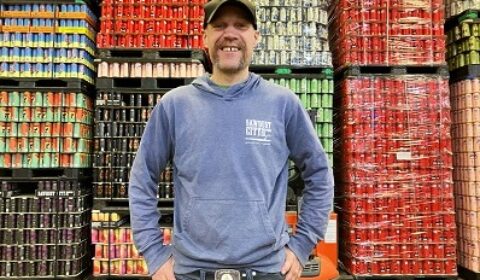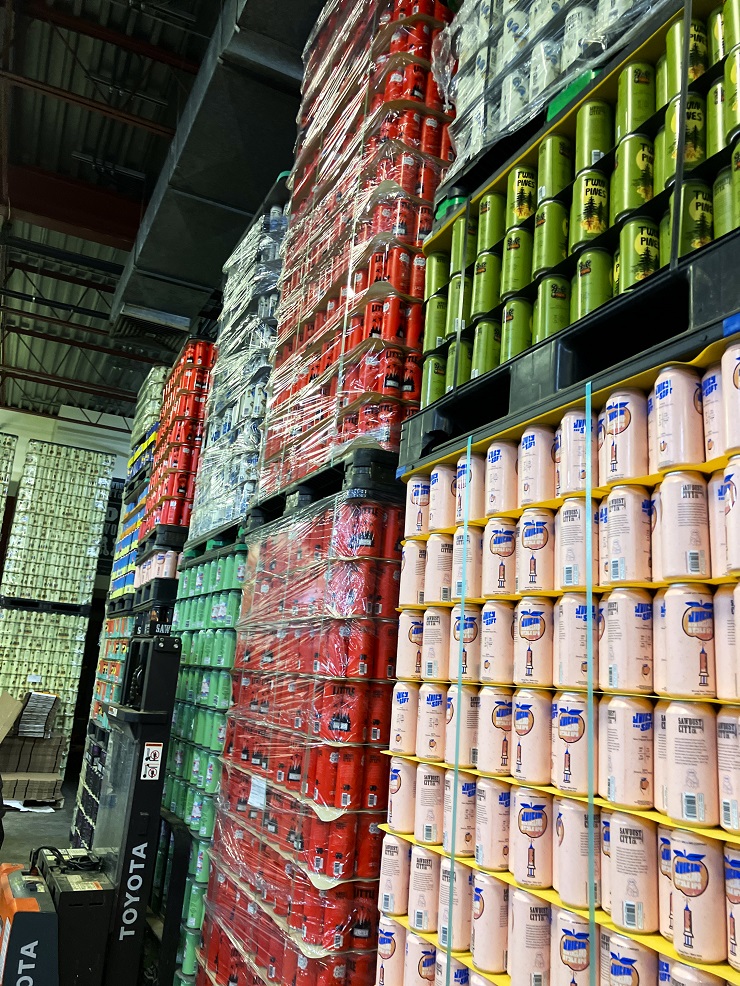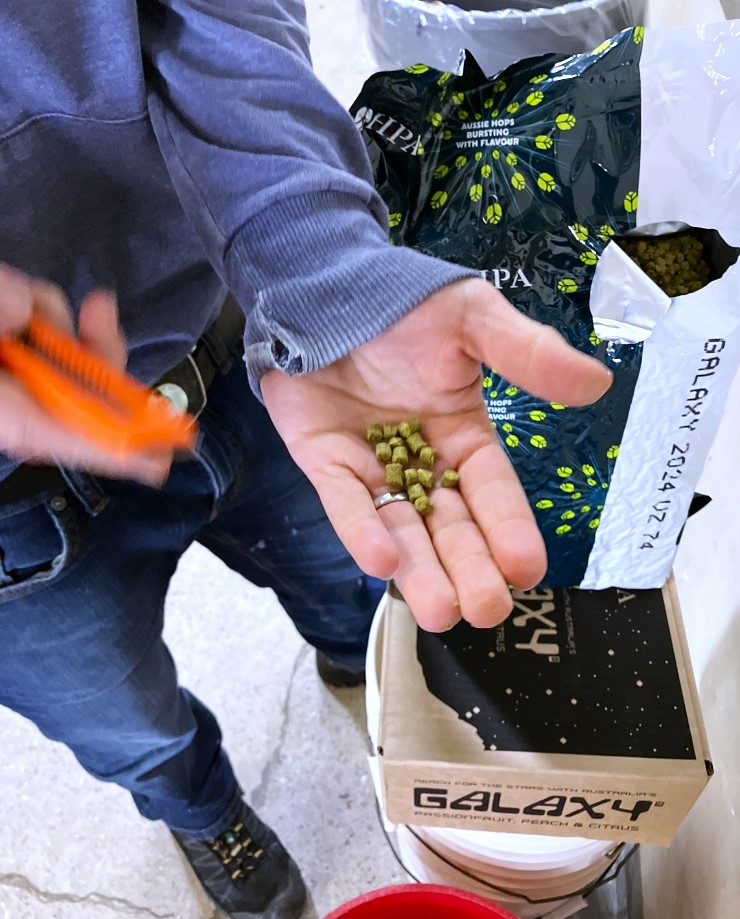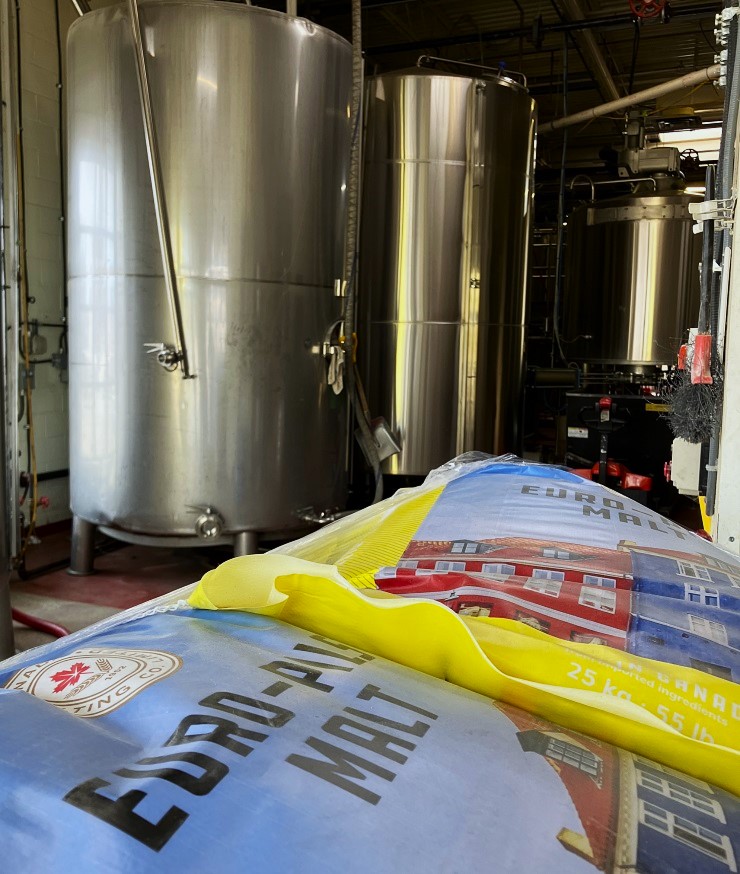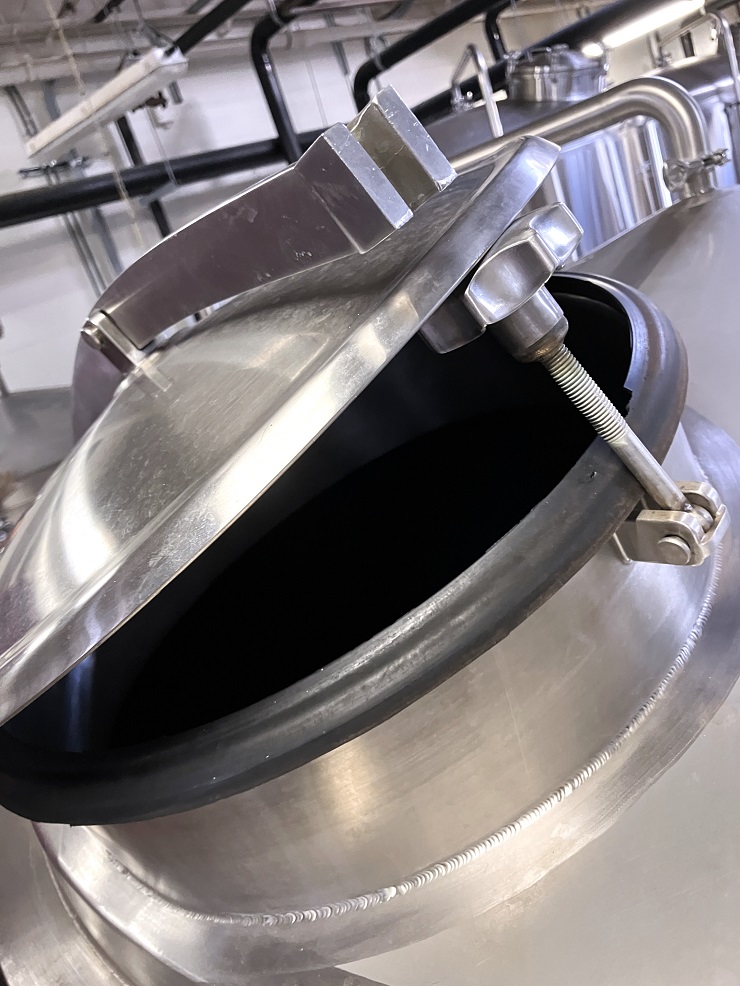SAWDUST CITY FIGHTIING TARIFF ALUMINUM THREAT WITH ‘GLORIOUS AND FREE’ CAN-DO BREW
Mark Clairmont | MuskokaTODAY.com
GRAVENHURST — If the tariff war continues two more weeks Sawdust City Brewing will be ready elbows up.
March 28 they are brewing a special batch of “Glorious and Free,” an “all-Canadian” ingredients beer as part of a recipe response cooked up by trans-Canada craft brewers.
And Sawdust will be able to can it — tariff free.
Rob Engman and Sam Corbeil, who co-founded the Gravenhurst brewery in 2011, say they’ve got enough cans in stock and won’t have to worry about U.S. steel and aluminium surcharges on their run of 2,800 litres.
In fact they’re stocked floor to ceiling with as many of the 473mL aluminium cans as they’ll need at least through spring.
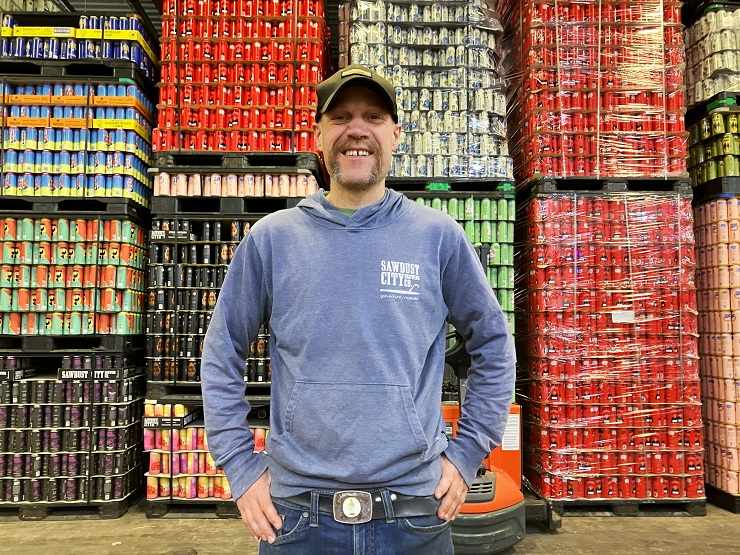
“Then we’ll see,” said Corbeil yesterday as he and his staff were brewing a “Free Trade” lager with Australian hops under the watch of visiting brewmeisters from the Flying Monkey, in Barrie, and Sandwich Brewing, in Windsor.
Along with Robbie Waters, eastern Canada sales rep for HopsConnect one of Canada’s largest craft beer suppliers of hops. The national company sources its hops from a farmer in Leamington near its Windsor regional office.
All of them on hand have their noses to the grindstone as they nervously follow developments north and south of the Windsor border.
Brew master Corbeil said right now they’ve got a good supply of cans they bought in advance recently, which will hold them till the beginning of summer. Their supplier outside Mississauga told them of a price increase coming. And asked if they wanted them.
“We said ‘yes, please.’ Everything counts.”
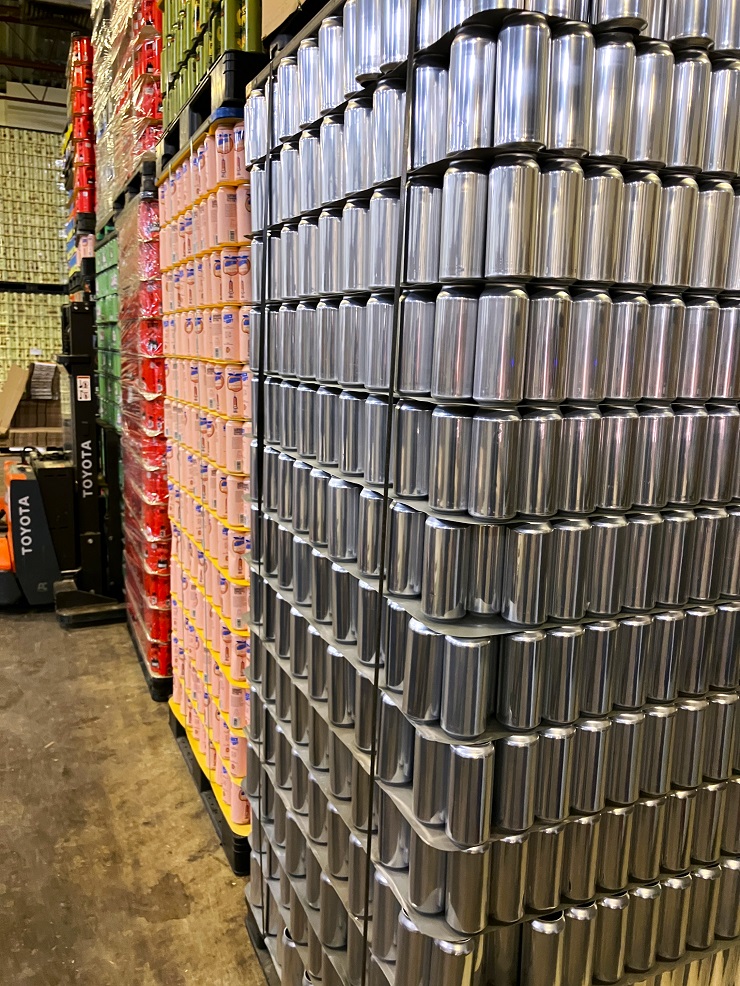
It leaves Sawdust with stacks of cans, some pre-printed and others that are silver blanks ready for them to wrap with custom labels.
“In summer we’ll be running the canning line pretty much every day. But the beer demand isn’t there now.
“People drink more when the sun comes out. And thankfully the sun is finally coming out. It’s been a long cold winter.”
Because beer is made from hops, malt, water and yeast, blending complementary ingredients makes or breaks a good beer. And they’ve developed some great ones also since opening their own brewery in Gravenhurst in 2014.
“A lot of our hops we contracted for years out,” said Corbeil. “We do get a fair portion of our hops from Europe. A lot of our more traditional beers are made with European hops.
“Unfortunately, North American hops are a very big part of our craft culture — with IPAs. That flavour profile only comes from northwestern U.S. hops. We’ve contracted them out and they’ve already been picked and they already exist in a warehouse in Ontario. And because we’re already contracted out for two years, hopefully in four years this all just goes away.
“We can only cross our fingers and hope cooler heads prevail.”

Waters said “there hasn’t been a lot of demand until recently for Canadian-grown hops,” but they have one crop called Sasquatch grown in Leamington, which he’d like to see the farmer “grow more acreage” of this year.
“Our malt is all Canadian, so we don’t have to worry about that,” added Corbeil. “And most of our yeast comes from a yeast bank in Guelph, which because it is reusable we only buy it maybe twice a year.”
He said most microbreweries produce about 1,000 to 2,000 hectolitres per year, with very few above 15,000. Sawdust is 6,000. (A hectolitre 1hL=100L.)
“It gives a town something to hang their hat on and say this is our local brewery and it’s a great the place to go. They’re typically big spaces. A community hub. We host bingo and trivia nights. Everyone’s always welcome at a brewery. They’re family friendly.”
Sawdust hosts weddings, beer nights and comedy nights in its new larger community room.
Scott Black, of the Sandwich Brewery on the river in Windsor, says they even host yoga two nights a week.
Corbeil said the last 15-20 years crafters grew, but there’s been contractions as the world changes and microbreweries are considered a bit of a luxury.

Engman agrees with Corbeil about the tariffs.
“The biggest impact will be on the cans and it’ll be a while before that trickles down, because from what I am aware of there are no Canadian can manufacturers.
“We buy our cans through a Canadian company that sources them from an American manufacturer. So at some point when the trickle down gets to their raw materials they have to adjust their pricing to us when we anticipate there will be a price increase.
“We generally have just in time delivery of our cans because of storage. Before when we had printed cans we had to buy them by the truck load and we usually kept a couple of tractor trailer loads over at our warehouse. And the minimum on screen printed cans used to be a truckload. But now the technology has gone to either plastic sleeves for labelling or digital printing, which has really taken over from the screen printed cans at the manufacturer.”
Sawdust uses both can methods and buys them depending on the volume of a their own or private beer order.
“The answer is we are anticipating an increase in the cost of our cans, because if the tariffs go on to the raw materials, clearly something’s gotta give. We haven’t seen that increase yet.”
Engman added “in terms of our other costs of making beer we do use hops from the U.S. — the Yakima Valley in Washington — but we’re contracted out to the end of 2026. And to our knowledge those hops are already in Canada, so they won’t be subject to tariffs until who knows what happens after 2026.
“I mean hopefully there’s some resolution to the situation south of us. But who knows.”
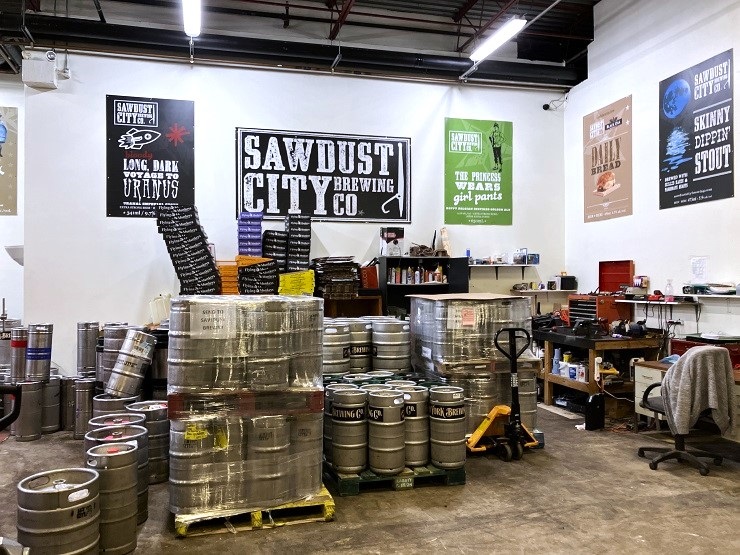
He, too, is excited “we’re just about to do a collab (sic) with the Dominion City Brewing in London. They’ve launched a multi-brewery collab campaign to do a brew with all-Canadian ingredients called ‘Glorious and Free.’ It’s PR campaign to underscore the importance of utilizing Canadian ingredients. We’re on board with that. In the past we have brewed a beer with all-Ontario ingredients called ‘The Place to Stand.’
“This is nothing new. It predates all the tariff nonsense. Most companies and certainly most breweries that we know are keenly focussed on protecting our jobs and our turf.
“The LCBO has been a big support in taking the U.S. stuff off the shelf and freeing up more of their space for Ontario and Canadian-produced products.
“But the one thing the provincial government could do — and we’ve been lobbying them for almost two years — is to lower the provincial taxes. Because as you probably know Ontario is the highest taxed beer jurisdiction in Canada. We’re taxed way higher than the other provinces are. So if they simply made the adjustments that we have been asking for that would certainly soften the blow on the can price hikes and would allow us to keep our prices where they are now.”
Molson is owned by Coors in the U.S. and Labatt is owned by AB InBev, a Brazilian global company, which dominate the “landscape and shelf space,” Engman said.
“And now that the province has opened convenience stores to beer, all you see is foreign brands. We as Ontario craft brewers only enjoy about a 12 per cent share combined, where as we employ far more people than the big multinational companies do.
“So we’re hoping that this latest round of assault on our sovereignty hammers home the message that we all win when we support Canadian businesses. And the only response to a protectionist neighbour is to be a little protectionist ourselves.”
Speaking from Florida where Engman is “recovering from a bit of a health issue last year,” he told MuskokaTODAY.com in a phone interview that “it’s uncomfortable for sure” living through these times as a Canadian and in holidaying in the U.S.
Especially as he has “plenty of friends and relatives” there.
“And some of them are Trump supporters and some aren’t. But even the Trump supporters — none of them expected this type of behaviour. It wasn’t talked about in any of his campaigns that he was going to come after Canada and Mexico and his allies and start siding with the enemy.”
Engman said Floridians and Americans “aren’t as well informed as we are.
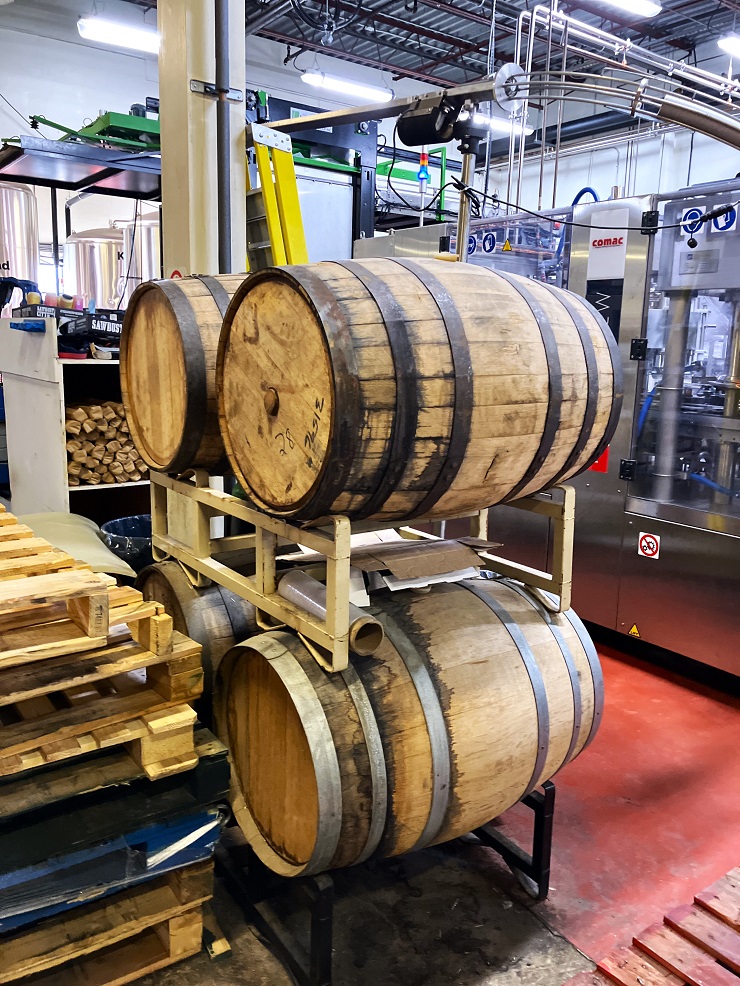
“Every opportunity I get, I sort them out. I grab on to these talking points about 200 and 300 per cent tariffs that Canada charges. But they don’t have the context that tariffs on agricultural products only kick in after a large amount of tariff-free volume. And it’s simply to help protect our home-grown farmers. And not have them flooded by U.S. products and be put out of business.
“Once they understand that then they go ‘Oh, well.’
“And then, of course, the excuse that fentanyl and illegals are pouring across our border, well that’s just a lie. Forget the numbers, they just don’t hold up to any meaningful scrutiny. Quite frankly it’s not our job to police what comes to their country. It’s what their border services are for. We don’t ask them to police all the illegal guns flowing into our country and resulting deaths. It’s our border’s problem to stop that. Put the blame where the blame lies.
“It’s just an excuse to try and take over a sovereign nation that has a lot of minerals. (Trump’s) just a transactional business guy who thinks he can walk in a steal what he wants. But that’s clearly not going to happen.”
Engman says he “always” takes some of his Sawdust beer down south with him.
“I take Juicin’ our New England style IPA.”
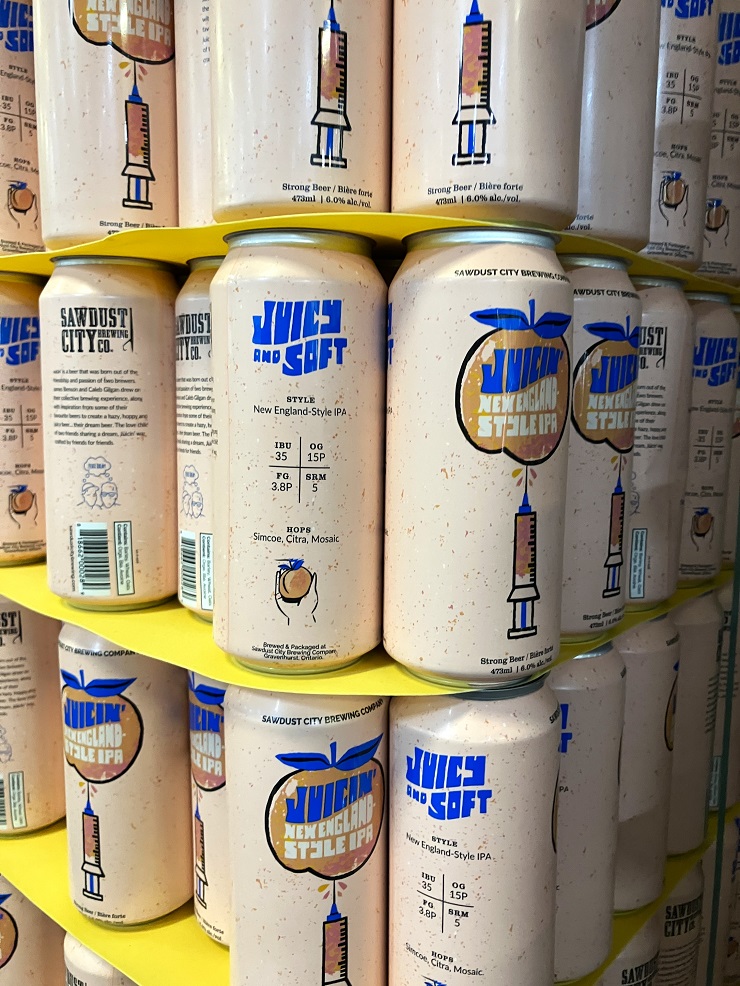
So for now’s he’s comfortable with Sawdust’s tariff position.
“Our supplier has enough (cans). We always have more cans on hand (in Gravenhurst) than I’m comfortable with, because it takes up so much space and room. Basically you’re storing air. We need the floor space. The supplier we work with has a huge warehouse of space and we do just in time delivery to match our needs and production run.
“I’m not worried about a supply shortage, but we certainly are concerned that prices will invariably rise in lockstep with the raw material tariffs.”

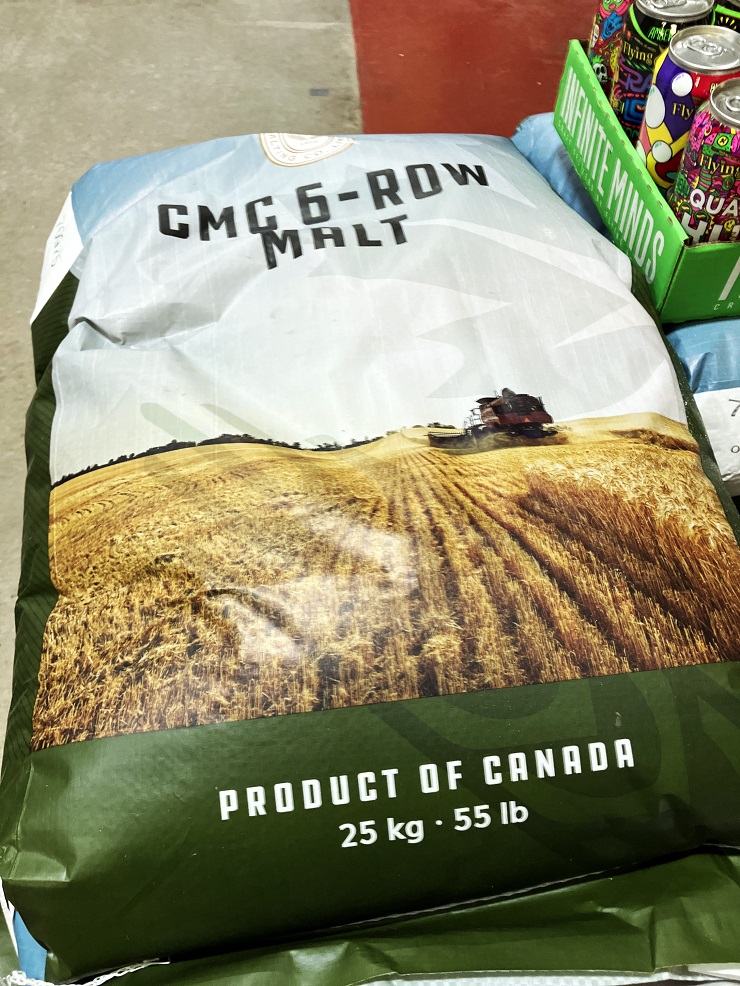
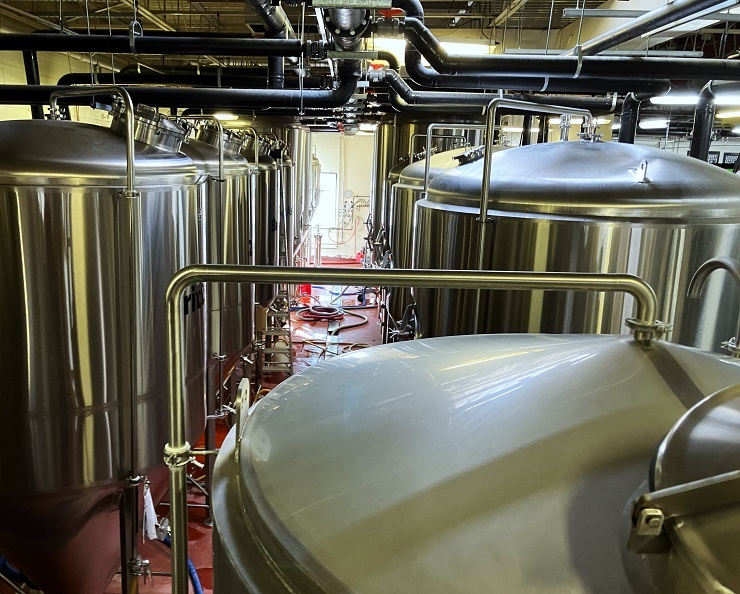
EMAIL: news@muskokatoday.com
30 years of TRUSTED ‘Local Online Journalism’
SINCE MAY 20, 1994
Twitter: @muskokatoday, Facebook: mclairmont1
SUBSCRIBE for $30 by e-transferring to news@muskokatoday.com
Mail cheque to MuskokaTODAY.com Box 34 Gravenhurst, Ont. P1P 1T5
And include your email address to get stories sent to your inbox
